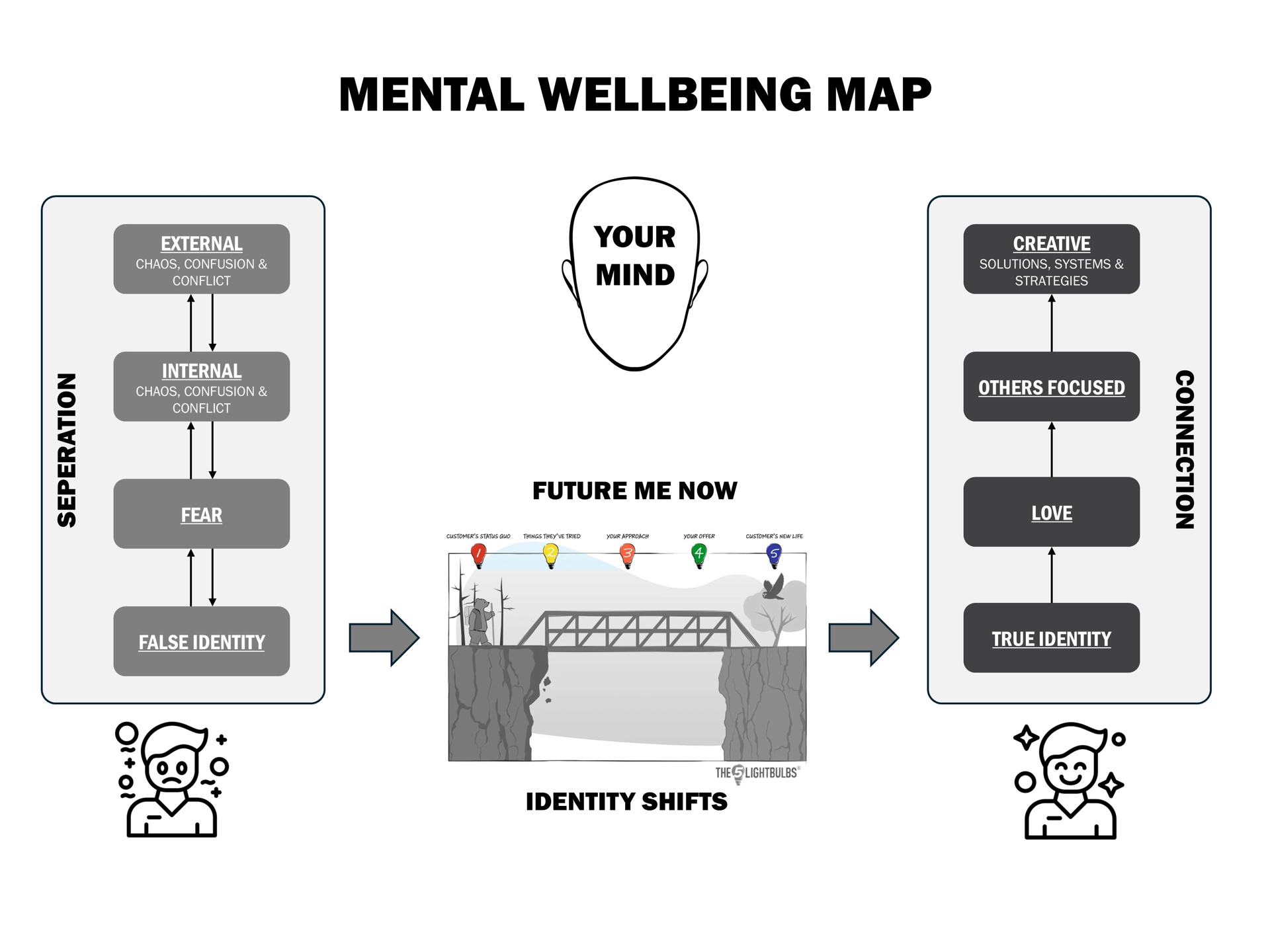
Global Mind Project
Tracking Our Evolving Mental Wellbeing
The Mission
- Map the wellbeing and functional capability of people and populations around the globe using accurate data
- Understand the root causes behind recent trends of declining mental health
- Deliver preventative solutions that shift the needle on mental health

What is Mental Wellbeing?
The word mental wellbeing combines the word ‘mental’ – so to do with your mind – with the world ‘wellbeing’ – how well it is doing. However, when people think about their mental wellbeing, they often associate it, or conflate it, with their mood and happiness – how well they are feeling. But our mood or happiness is just one facet of our mental wellbeing. What’s more, when it comes to how well our mind is doing, it’s not just about how we are feeling, it also about how well we are functioning.
This more all-encompassing definition of mental wellbeing is captured nicely by the World Health Organization (WHO) who state ‘Mental health is a state of mental well-being that enables people to cope with the stresses of life, realize their abilities, learn well and work well, and contribute to their community.’ In other words, our mental wellbeing covers everything from being able to form good relationships with others; being emotionally resilient; being able to focus and make good decisions to having good energy levels.
At Sapien Labs, this is what we mean by mental wellbeing – not just our mood and outlook, but the full range of our mental feeling and functioning that allow us to navigate life’s challenges and function productively – our full capability of mind.
Measuring Mental Wellbeing
This is also reflected in how we measure mental wellbeing in the Global Mind Project. Rather than just asking people about how happy they feel, or how satisfied they are with life, we use a tool called the MHQ assessment which asks about 47 different elements of mental wellbeing, covering our social, emotional, cognitive and physical capabilities of mind. It was developed based on a thorough analysis of 126 existing assessments of mental health and wellbeing covering 10,000 questions, to include the symptoms of 10 different mental health disorders from depression to eating disorders to PTSD, as well as positive strengths and assets.
The 6 dimensions of mental wellbeing measured by the MHQ.

With the 47 elements assessed on a scale that reflects the impact of those capabilities to one’s life and ability to function, overall scores of mental wellbeing (MHQ scores) reflect functional productivity – the ability to get done the things you need to get done in a day. Overall, MHQ scores have a linear relationship to productive days such that the number of productive days increase or decrease equivalently as you move up or down the MHQ scale at any point.

Thus, the MHQ also serves as a proxy for functional capacity of a population and can be used to demonstrate the functional capacity of various populations from schools to companies, and countries.
Altogether, mental wellbeing as measured by the MHQ reflects the composite capability of mind that enables us to navigate life’s challenges and function productivity.
Mindset Framing
Consider the challenges of your job, your career, your life and your finances. What do they have in common, psychologically? In each case, success requires high-functioning human agency.
In the psychological sense, agency entails a category of beliefs, a mindset. More profoundly, genuine agency includes the strategies and actions that accomplish what we want and bring us what we need.
Feeling that you have agency is nice. But feeling agentic falls far short of exercising agency—thinking and behaving competently and making real progress toward your desired goals.
To exercise agency is to acquire significant peace in life’s various arenas, including school, work, sports, physical health, and psychological well-being.
Mental Agency
Agency is important to your life because it’s the power to create the outcomes that you want, versus depending on external forces. Any goal that you haven’t yet accomplished is probably missing at least one component of agency. Maybe you don’t have the resources or just haven’t had the right opportunity. (Some personality types are better than others at boldly seizing opportunities.) But the role of agency in achieving your goals is just the mechanical half of its importance – it also has deep emotional and psychological ramifications.
Mental agency boosts your self-esteem, confidence, and optimism – qualities that many personalities struggle with. Your capacity for effective action helps you feel happier and more secure and helps you develop your potential to access what life has to offer. Mental agency makes you feel like you can direct your own life, and that makes it easier to bravely face challenges, push your boundaries with less stress, and even handle failure with resilience.
When you have low mental agency, you’re more likely to feel helpless, frustrated, or scared. If you don’t think that your actions can produce the desired results, you may not have much reason to act. Turbulent personality types are likely to experience self-doubt, for example. But things are rarely clear-cut, and your personal agency likely depends on the situation. You may usually have high agency and occasionally flounder, or you may rarely have agency and only sometimes feel empowered. (Or anywhere in between.) Your degree of mental agency affects your life significantly and that makes understanding it a critical part of personal growth.
Future Me Flywheel
Future Me Now is a proactive solution to the declining mental wellbeing in the world today!



